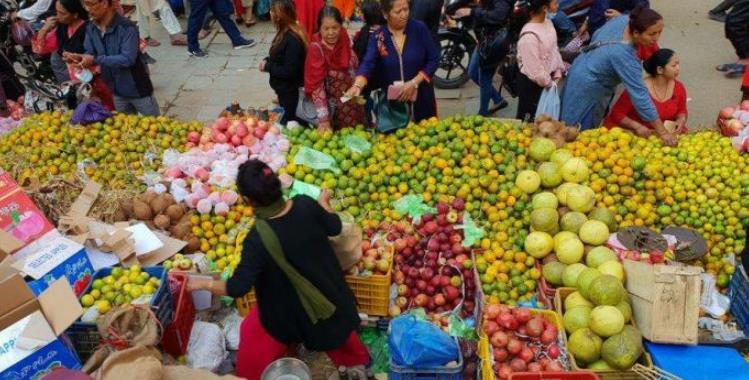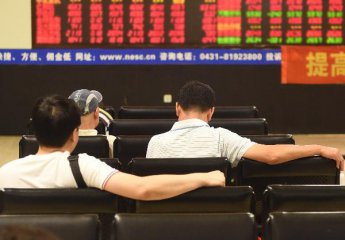
Tihar, the second largest Nepalese festival, started Wednesday in Nepal, celebrated by people with small oil lamps lit up around the country. But Mahalaxmi Shrestha was not there.
Instead, she was busy introducing her honey products to purchasers in her booth at the China International Import Expo (CIIE) in Shanghai.
"I came into contact with many companies here and some of them were very seriously taking interest in our products," said Ms. Shrestha, managing director of Nepalese honey producer The Beekeeping Shop.
The CIIE, held for the first time ever since Monday, has invited 35 out of more than 40 least developed countries (LDCs) listed by the UN, including Nepal, Afghanistan, Cambodia, Ethiopia and Madagascar, offering preferential policies such as exemption of participation fees for them to promote their industries such as tourism and products like honey, tea, coffee, peppers, hair oil and other organic products.
"This is a very great opportunity for Malawi to find an entrance into the Chinese market," said Clement Kumbemba, CEO of the Malawi Investment and Trade Center. Traveling in a delegation of 18 people, he said they had much confidence in China's "enormous consumption" and "spending power."
Facing global competitors at the expo, exhibitors from the LDCs still saw many opportunities.
Having been in the honey industry for the last 25 years, Shrestha has yet to enter the Chinese market. However, she said they could be competitive because of their unique, quality products, including a special honey collected from flowers of butter trees, a Himalayan tree widely distributed in Nepal.
"It's a unique honey from Nepal -- you can't find butter tree honey in any other part of the world," she said.
With living standards improving rapidly, Chinese people are showing increasing interest in products related to healthcare, beauty and a healthier life, especially the organic and rare products.
Data released by market research firm Euromonitor International showed that organic food consumption in China enjoyed a double-digit year-on-year growth between 2012 and 2016. Avocado imports to China surged from 1.9 tonnes in 2010 to 25,000 tonnes in 2016, according to the UN Comtrade Database.
As managing director of Sindhiya, a Bangladeshi skincare and haircare producer, Sarmad Mansor brought around 150 units of his products to display at the expo. Despite his explanation that the products were not for sale, buyers from all over China persuaded and bought more than 100 packages, all in cash, which was surprising considering that many Chinese use smartphones as their only payment method in day-to-day life.
"The products seem to be healthy and also relatively cheap," said Yang Lei, a buyer from the northeastern Heilongjiang Province, who showed much interest in the products.
Mansor began to export raw herbal material to China in 2004, but this was his first time introducing finished products, which can bring him over twice the profit and a better price for the farmers. "I'm very optimistic. There will be a very good market in China," he said.
Yet a big market is not the only pursuits of LDC exhibitors.
Olivia Madhow Rasoamanarivo is the managing director of Madagascar Airtours. Having traveled hours across the Indian Ocean from the island country to China, she expected to find Chinese partnerships to help deal with the shortage of hotels, as the baobab trees in the tourist destination are very attractive to Chinese tourists.
"We need interested Chinese companies to invest in infrastructure and facilities," she said.
That was also what Ms. Shrestha hoped for. "We would like to cooperate with Chinese businesses to upgrade our infrastructures," she said, adding that with assistance from investors, they can at least double the production.
For local people working for the beekeeping farms there, this will also mean improved income and living standards, which are a key goal of inviting the LDCs to the CIIE as well.
In his speech at the opening ceremony of the CIIE Monday, World Bank Group President Jim Yong Kim shared about how he was inspired by the poverty reduction in China through agriculture product trade and said he hoped the expo would bring new ideas and avenues to make the global market system work for everyone and help end poverty.
China has been cooperating with 10 ASEAN countries under the framework of a China-ASEAN Free Trade Area to facilitate bilateral trade. Also during the 2018 Beijing Summit of the Forum on China-Africa Cooperation (FOCAC) in September, China announced the setting up of a 5 billion-U.S. dollar special fund for financing imports from Africa.
"The best tool to address poverty is trade," said Kumbemba with the Malawi Investment and Trade Center, who said he saw a "golden opportunity."
He regarded the import expo as a quicker way to improve their people's livelihood. "When their products find themselves in the export market, more people in Malawi will have money in their pockets."
Sibylle Neuhaus, an associate events advisor for communications and events of the International Trade Center, said at the CIIE that the expo seemed to be more efficient in linking developing countries to potential partners than many other past events.
"It (CIIE) is exposed to so many potential buyers," said Neuhaus, whose organization helps with trade promotion for developing countries. "Here we have already had quite some success, and some companies have already signed several letters of intent."
Ms. Shrestha, who has also sold some of her honey to interested buyers, said she planned to take it step-by-step in this brand new and promising market.
Though she missed the big festival back home, she expressed no regrets.
"Coming to the expo has helped enlarge our vision," she said. "I'm glad that I did this."


















Latest comments